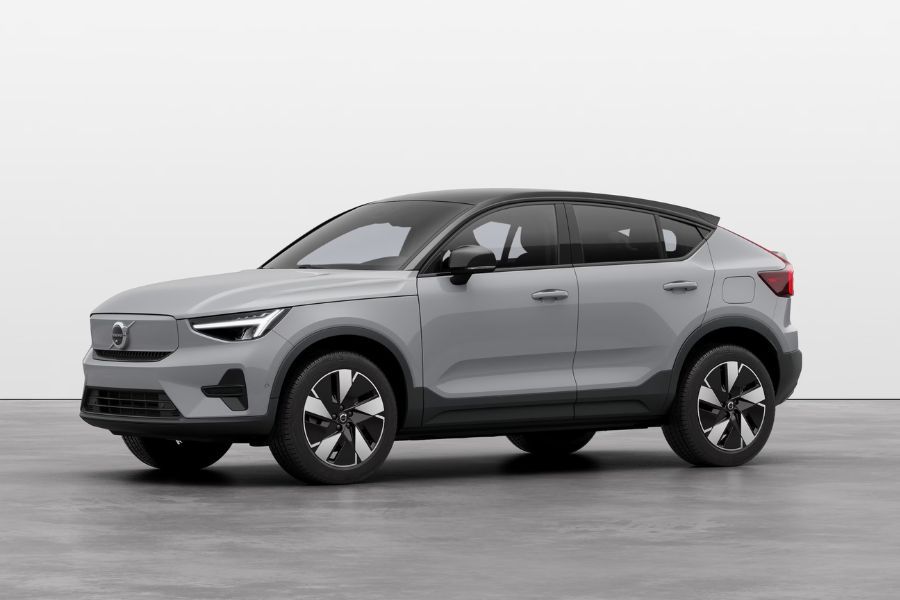With more than 600 electric cars sold in 2024, the Guatemalan market is experiencing unprecedented growth in electromobility.
In this article, all the details about the electric boom happening in the country.
The four-wheel electric vehicle market closed the year with 606 units sold, showing a notable increase in the adoption of this technology.
Charging infrastructure: a key driver of growth
A key factor in this progress has been the improvement of the charging infrastructure.
Currently, Guatemala has 100 charging points and 132 operational chargers, which has facilitated the expansion of the segment.
At the territorial level, growth is also evident. Eighteen departments already have at least one electric charging station, with a higher concentration in the Metropolitan Region, where 56 stations are located.
The expansion of the charging network has been driven by the private sector, which seeks to strengthen the necessary infrastructure to support the increasing number of electric vehicles on the roads.
Electric motorcycles: the two-wheel revolution
The electric motorcycle segment has also experienced significant growth. Out of the 526 units sold in 2024, 98% were electric motorcycles, while the remaining 2% were electric tuk-tuks.
This trend is mainly due to the growing demand for more affordable and energy-efficient mobility options, especially in urban environments.
Electric motorcycles have gained popularity in sectors such as last-mile delivery and individual transportation, where they offer a cheaper and more accessible alternative compared to internal combustion models.
Their lower maintenance needs and the possibility of home charging have been key factors in their rapid adoption.
Where do the electric vehicles in Guatemala come from?
Evolution of electric vehicle sales in Guatemala
One of the key insights from AMEGUA’s report is the origin of the electric vehicles that entered the country in 2024.
Asian brands continue to dominate the market, with a strong presence of Chinese manufacturers, which have consolidated their position in the segment thanks to their competitive pricing and wide range of models.
Regarding the entry point of these vehicles into the country, statistics indicate that most units enter Guatemala through major customs points, highlighting a logistics system that has adapted to the growing electromobility sector.
Outlook for 2025: What’s next for electric mobility in Guatemala?
With 2024 marked by record-breaking sales and an expanding charging infrastructure, Guatemala is emerging as an important market for electric mobility in the region. However, significant challenges remain.
The lack of tax incentives and public policies that promote electromobility continues to be a barrier to mass adoption, especially in the four-wheel vehicle segment.
In 2025, the main challenge will be to consolidate the fast-charging network, promote incentives to reduce the cost of acquiring electric vehicles, and improve access to financing for this technology.
Additionally, it will be crucial to strengthen consumer confidence in electromobility by ensuring an ecosystem that facilitates its widespread use across the country.
2024 was undoubtedly the year when electric mobility ceased to be an emerging trend and became a consolidated reality in Guatemala.
Now, the challenge is to sustain this growth and position the country as a benchmark for the transition to cleaner and more efficient transportation in the region.
AMEGUA’s leadership: a key role in the sector’s growth
It is worth mentioning that the Board of Directors of AMEGUA (2022-2024) has been fundamental in the consolidation of electric mobility in Guatemala.
Led by Nancy Chacón (President), alongside Jaime Alberto Choto (Vice President) and José Miguel Cardona (Secretary), this leadership team has promoted key strategies for sector expansion, from charging infrastructure development to facilitating access to electric vehicles.
Additionally, they have been supported by Juan Carlos Botrán (Treasurer) and board members Rocío Reyna, Karen Wantland, and Sergio Arévalo.
Under the management of Thelma Solares (Executive Director), AMEGUA has strengthened its role as a reference entity in the sustainable development of transportation in Guatemala, facilitating the record-breaking growth of 2024 and laying the groundwork for a more electrified future.After surpassing 600 electric vehicle sales, where is the market in Guatemala heading?
With more than 600 electric cars sold in 2024, the Guatemalan market is experiencing unprecedented growth in electromobility. In this article, all the details about the electric boom happening in the country.
The four-wheel electric vehicle market closed the year with 606 units sold, showing a notable increase in the adoption of this technology.
Charging infrastructure: a key driver of growth
A key factor in this progress has been the improvement of the charging infrastructure.
Currently, Guatemala has 100 charging points and 132 operational chargers, which has facilitated the expansion of the segment.
At the territorial level, growth is also evident. Eighteen departments already have at least one electric charging station, with a higher concentration in the Metropolitan Region, where 56 stations are located.
The expansion of the charging network has been driven by the private sector, which seeks to strengthen the necessary infrastructure to support the increasing number of electric vehicles on the roads.
Electric motorcycles: the two-wheel revolution
The electric motorcycle segment has also experienced significant growth. Out of the 526 units sold in 2024, 98% were electric motorcycles, while the remaining 2% were electric tuk-tuks.
This trend is mainly due to the growing demand for more affordable and energy-efficient mobility options, especially in urban environments.
Electric motorcycles have gained popularity in sectors such as last-mile delivery and individual transportation, where they offer a cheaper and more accessible alternative compared to internal combustion models.
Their lower maintenance needs and the possibility of home charging have been key factors in their rapid adoption.
Where do the electric vehicles in Guatemala come from?
Evolution of electric vehicle sales in Guatemala
One of the key insights from AMEGUA’s report is the origin of the electric vehicles that entered the country in 2024.
Asian brands continue to dominate the market, with a strong presence of Chinese manufacturers, which have consolidated their position in the segment thanks to their competitive pricing and wide range of models.
Regarding the entry point of these vehicles into the country, statistics indicate that most units enter Guatemala through major customs points, highlighting a logistics system that has adapted to the growing electromobility sector.
Outlook for 2025: What’s next for electric mobility in Guatemala?
With 2024 marked by record-breaking sales and an expanding charging infrastructure, Guatemala is emerging as an important market for electric mobility in the region. However, significant challenges remain.
The lack of tax incentives and public policies that promote electromobility continues to be a barrier to mass adoption, especially in the four-wheel vehicle segment.
In 2025, the main challenge will be to consolidate the fast-charging network, promote incentives to reduce the cost of acquiring electric vehicles, and improve access to financing for this technology.
Additionally, it will be crucial to strengthen consumer confidence in electromobility by ensuring an ecosystem that facilitates its widespread use across the country.
2024 was undoubtedly the year when electric mobility ceased to be an emerging trend and became a consolidated reality in Guatemala.
Now, the challenge is to sustain this growth and position the country as a benchmark for the transition to cleaner and more efficient transportation in the region.
AMEGUA’s leadership: a key role in the sector’s growth
It is worth mentioning that the Board of Directors of AMEGUA (2022-2024) has been fundamental in the consolidation of electric mobility in Guatemala.
Led by Nancy Chacón (President), alongside Jaime Alberto Choto (Vice President) and José Miguel Cardona (Secretary), this leadership team has promoted key strategies for sector expansion, from charging infrastructure development to facilitating access to electric vehicles.
Additionally, they have been supported by Juan Carlos Botrán (Treasurer) and board members Rocío Reyna, Karen Wantland, and Sergio Arévalo.
Under the management of Thelma Solares (Executive Director), AMEGUA has strengthened its role as a reference entity in the sustainable development of transportation in Guatemala, facilitating the record-breaking growth of 2024 and laying the groundwork for a more electrified future.








One Response
Mi esposo es de Guatemala, y vivimos en EEUU pero estamos planando de pasar mas tiempo en Guatemala. El tiene experiencia en instalar estaciones de cargar baterias electricas. Si necesitan mas gente haciendo estas trabajos, si pueden hacer el favor de compartir informacion y nombres de contacto.
Muchos gracias.